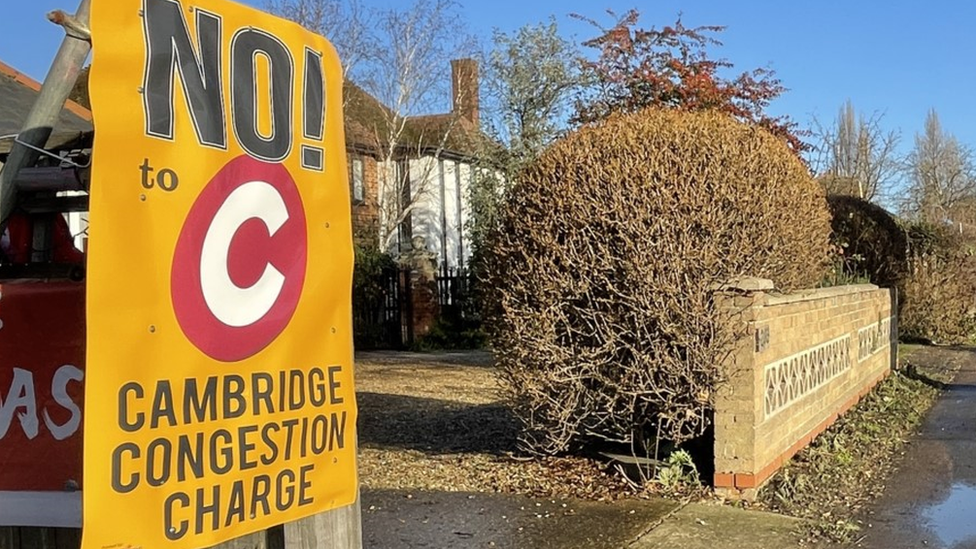Cambridge congestion charge: Has it really run out of road?
- Published
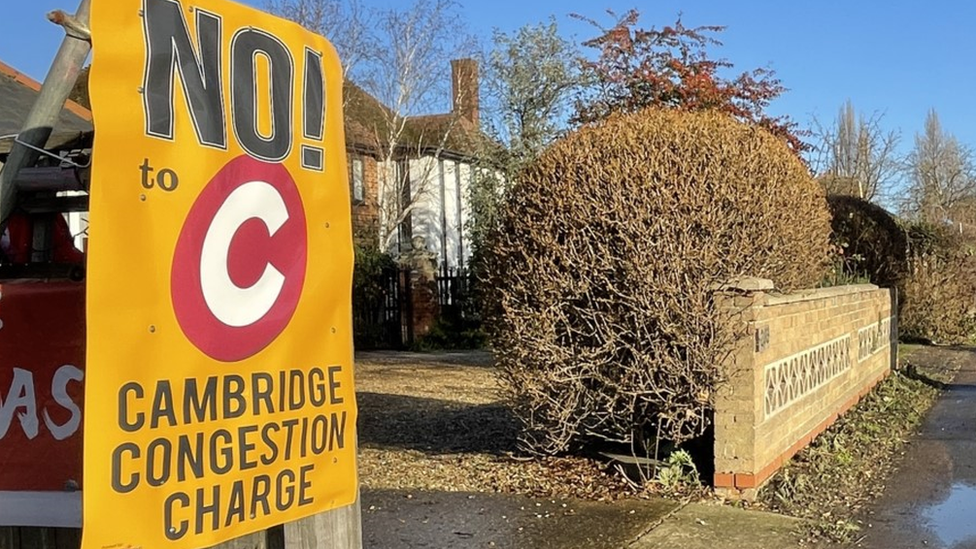
The Cambridge congestion charge plans have been scrapped and will not be going forward following a GCP board meeting
Plans for a congestion charge in Cambridge will no longer go ahead after local politicians withdrew their support. But is it really the end for the controversial scheme - and what happens next?
Under the plans, drivers would have paid a £5 weekday charge between 07:00 and 19:00 to use the city's roads, raising about £26m a year and helping to pay for an expansion of the bus network, as well as improvements to cycling and walking routes.
However, the Greater Cambridge Partnership (GCP) said it could not recommend taking the proposals forward, with Cambridgeshire County Council's Liberal Democrat leader Lucy Nethsingha saying she didn't feel it was "the right moment".
Ms Nethsingha told BBC Radio Cambridgeshire: "Sometimes when you're trying to make people move forward with thinking about the way they run their lives differently, you need to take small steps rather than very large ones."
She said a lot had come out of consultations on the topic, including "a need for a better bus service".
She added: "The consensus on how it should be paid for is not clear. We need to find some cash for it."
Ms Nethsingha said the Mayor of Cambridgeshire and Peterborough and the combined authority had started a consultation on bus reform.
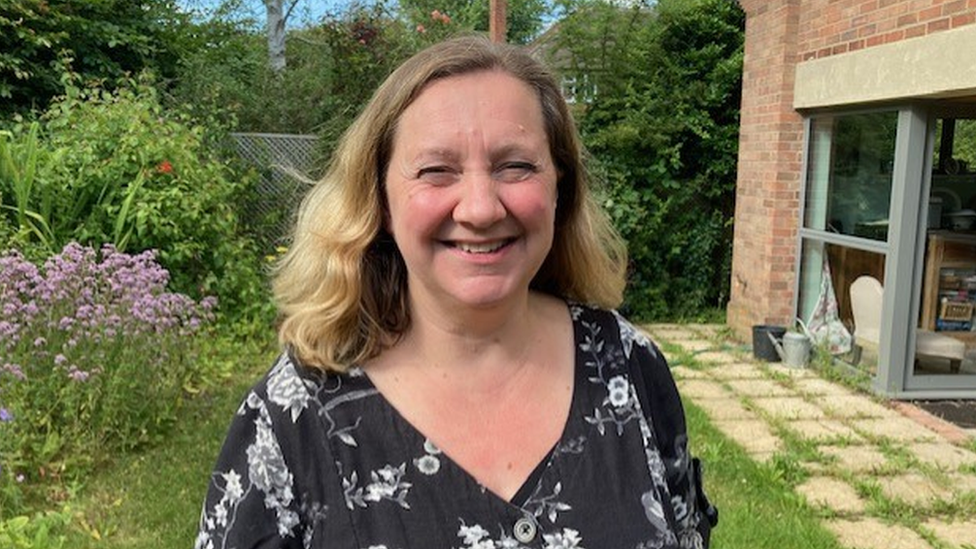
Liberal Democrat Council leader Lucy Nethsingha said it wasn't the right time for the plans to go ahead
The chair of the GCP, Labour city councillor Elisa Meschini, said the "baton has passed" to solve the city's transport problems.
She said the problems facing Cambridge still existed and would only get worse if they were not addressed.
However, she said people who had stated their commitment to improving the infrastructure network and said they could fund it another way must "step up to the plate".
Ms Meschini said she was "extremely disappointed" the "coalition partners fell at the last hurdle".
She said the GCP would continue with its other projects, but that it had a "very busy plate" and may not have the time to go back to the drawing board on the plans.
"Other people that are not on this board have decided that they want to direct this work, so they will need to be held accountable for what they have said," she said.
Ms Meschini said she had faced death threat over the congestion charge proposals.
"The supply of politicians that will make unpopular decisions when they are pressured to the point that I was is small; nobody can do this on their own," she said.
"This particular battle has been lost. I am not sure what the next one looks like, but the one thing I can tell you is that I am not fighting it on my own any more."

Analysis by Phil Shepka, BBC East
Whichever side of the congestion charge debate people find themselves on, many would agree with city council leader Mike Davey, who said it had "broken" the city.
Discussions around the proposals have verged on toxic at times, with councillors for and against the scheme receiving unacceptable threats.
Plans have now been shelved and, while the proposals may be completely separate, there will surely have been eyes on London's Ultra Low Emission Zone (Ulez), which has underlined how controversial road charging can be.
Hundreds of Ulez cameras have been vandalised, while Sir Keir Starmer blamed Labour's defeat in the Uxbridge and South Ruislip by-election for its support for Ulez.
The question remains, where does the Greater Cambridge Partnership go next as it looks to build better transport infrastructure in the city?

Campaigner Roxanne De Beaux, of Cam Cycle, who was in favour of the congestion charge, said there needed to be a plan B.
"These challenges are not going away. Wishful thinking is not going to fix these problems," she said.
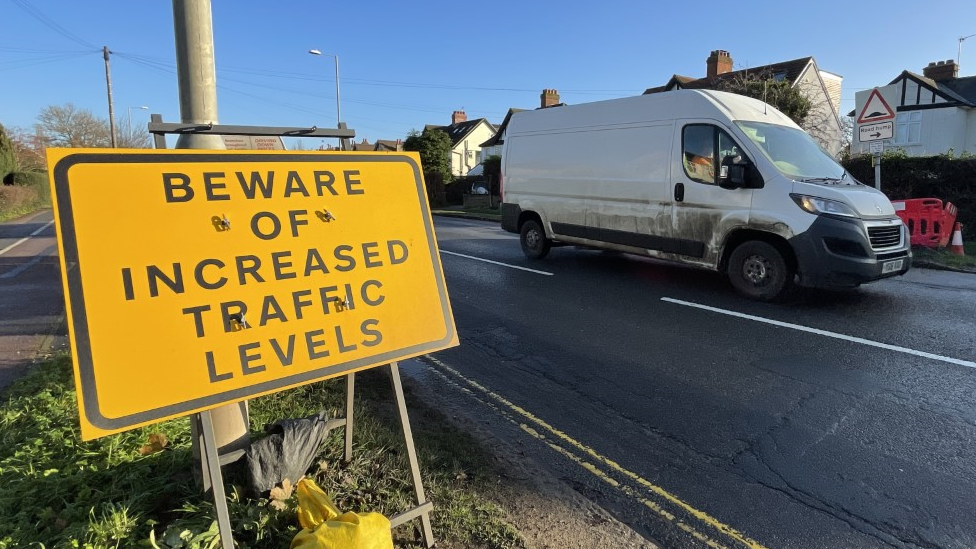
The original proposal said drivers would be charged at least £5 if they drove into or around Cambridge between 07:00 and 19:00 on weekdays
Heather Williams, leader of the Conservatives on South Cambridgeshire District Council, told BBC Radio Cambridgeshire: "The fact that we don't have the imminent threat of congestion charge is good news. I don't hold a lot of hope long-term.
"I would see it very much as 'it's paused'."
She claimed there were divisions within the Liberal Democrats locally and there was still a lot of support for pushing the congestion charge through.
"I think we would be naïve if we were to say this is the end of the story. I think it will die down until the general election."

Follow East of England news on Facebook, external, Instagram, external and X, external. Got a story? Email eastofenglandnews@bbc.co.uk, external or WhatsApp us on 0800 169 1830.
- Published28 September 2023
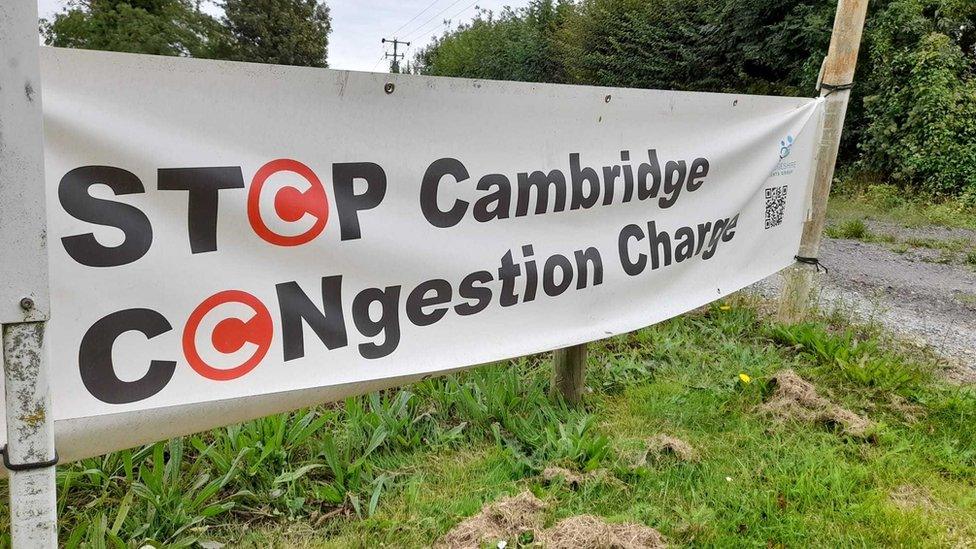
- Published7 September 2023
